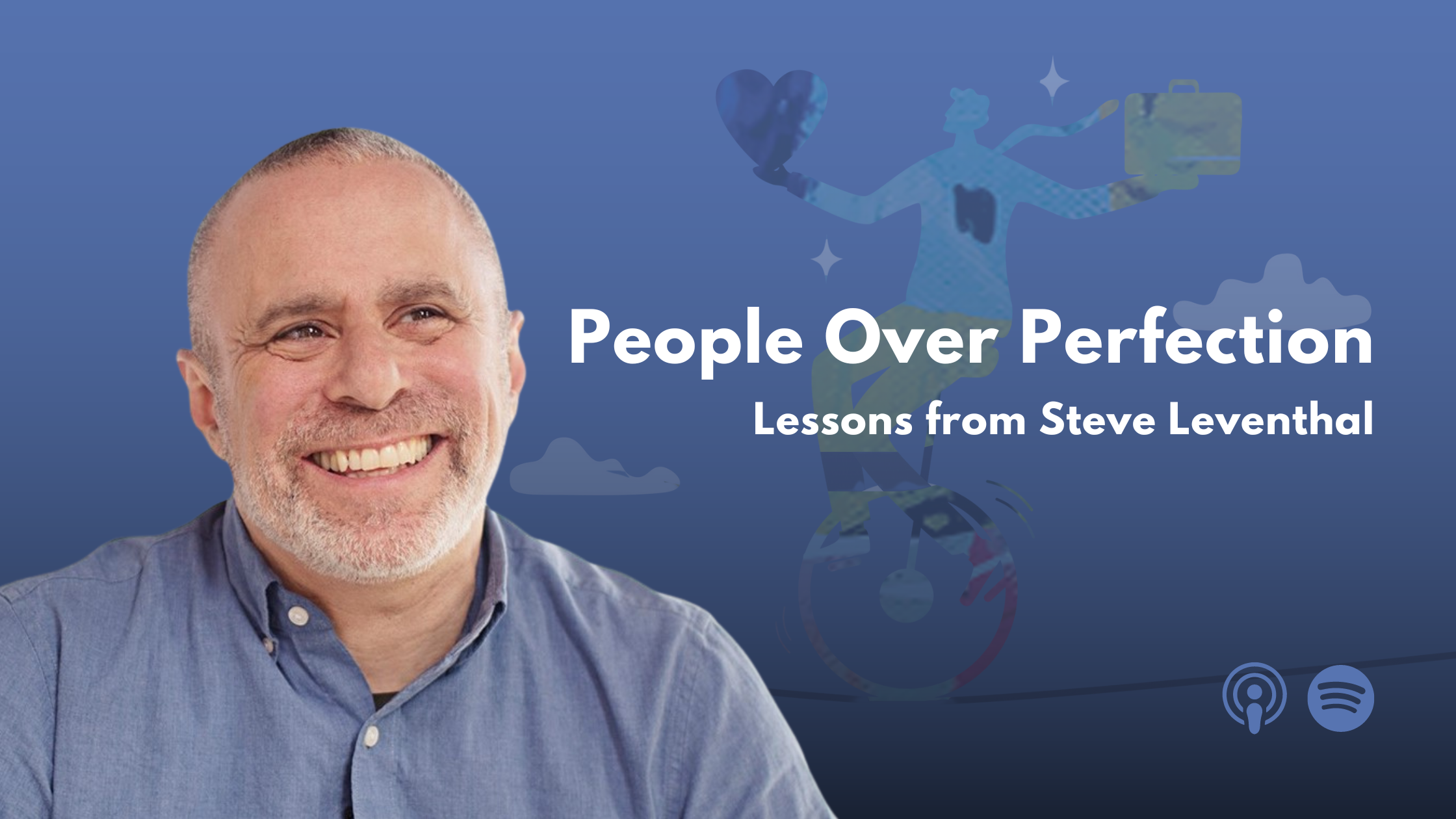In this episode of Meaningful Work Matters, host Andrew Soren speaks with Elaine Lin Hering, author of the new book "Unlearning Silence: How to Speak Your Mind, Unleash Talent, and Live More Fully."
Elaine, a recovering attorney turned accidental author, has dedicated her career to improving how we communicate with each other. Her work focuses on helping people show up authentically in the workplace and in life.
Unlearning Silence
Lin Hering introduces the concept of "unlearning silence" as a crucial step in creating more authentic and effective workplace communication. She defines silence in this context as feeling that there isn't enough room for one's ideas, insights, needs, goals, hopes, and concerns in a relational system, whether at work or in personal relationships.
Lin Hering explains:
"Silence is when you feel like you're not going to be well received, and so the outcome that makes more sense is to keep your mouth shut."
This silence can manifest in various ways, such as the "meeting after the meeting" phenomenon or the need for employees to censor or edit themselves.
The process of unlearning silence involves:
Awareness of one's assumptions about voice and silence
Interrogating these assumptions
Experimenting with new behaviors
Building a supportive team
The Complexity of Authenticity at Work
Lin Hering delves into the nuanced topic of authenticity in the workplace, particularly for individuals with subordinated identities. She highlights the challenges of bringing one's authentic self to work when facing an uphill battle against dominant cultural norms.
"Every organization, every team has a dominant culture," Lin Hering explains. "And it is driven by the people who carry that identity... If you carry the subordinated identity, meaning not the dominant, you are inherently pushing uphill."
This concept raises important questions about how organizations can create environments where diverse voices are truly valued and heard.
Challenges and Considerations
Lin Hering acknowledges that there can be real costs to speaking up in the workplace. She emphasizes the importance of agency in deciding when to speak and when to remain silent. The challenge lies in distinguishing between silence that is strategic and empowering versus silence that is oppressive and disempowering.
"The difference between silence that is additive or strategic and the silence that is oppressive is agency," Lin Hering notes. This nuanced understanding of silence challenges the simplistic "speak up" culture often promoted in workplaces.
Awareness and Action
Lin Hering presents a two-part framework for unlearning silence:
Awareness: Recognizing our assumptions about voice, silence, and who gets to speak in various contexts.
Action: Interrogating these assumptions, experimenting with new behaviors, and building a supportive network.
This framework emphasizes the importance of self-reflection and intentional behavior change in creating more inclusive and authentic communication environments.
Practical Applications and Implications
For individuals:
Regularly ask yourself, "What do I think?" and "What do I need?" to reconnect with your authentic voice.
Start with small experiments to practice using your voice in low-stakes situations.
Build a supportive team around you, including mentors, peers, and media sources that reinforce your values.
For managers and leaders:
Recognize that not everyone communicates or processes information like you do.
Actively design communication and work processes that accommodate diverse styles and preferences.
Create opportunities for new hires to act as "culture detectives," leveraging their fresh perspectives to question established norms.
Final Thoughts
Unlearning silence connects deeply to the broader themes of meaningful work, employee well-being, and organizational culture. By creating environments where people feel empowered to express their authentic selves, organizations can tap into diverse perspectives, increase innovation, and improve overall job satisfaction.
Lin Hering’s work also touches on important issues of equity and inclusion in the workplace, highlighting how dominant cultural norms can silence marginalized voices and limit the potential for true diversity of thought.
"We're co-creating culture and everyone owns it. So what is my role in creating a space where each human being experiences dignity and belonging at work and is able to do their best work?"
Resources for Further Exploration
Elaine Lin Hering's book: "Unlearning Silence: How to Speak Your Mind, Unleash Talent, and Live More Fully"
Ankari Williams' work on micro-activism: link




























